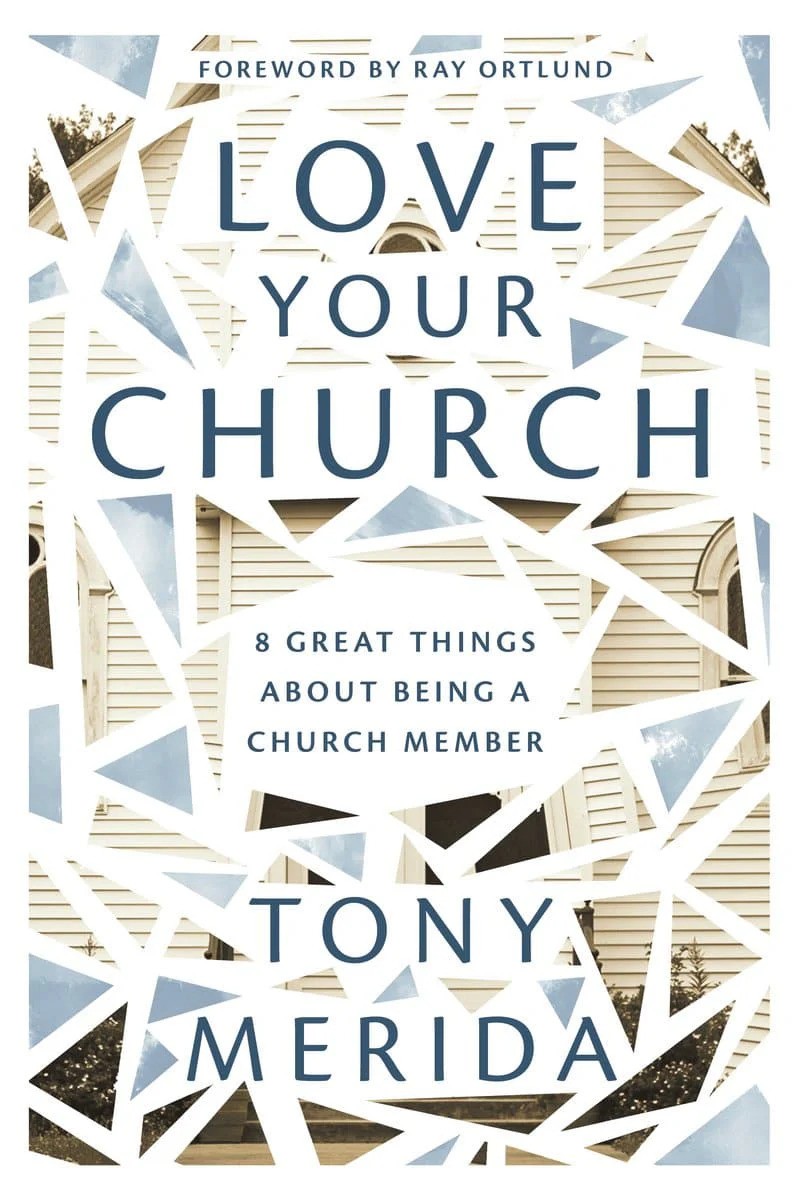These days, going to church is becoming increasingly strange. Why give up a Sunday morning sleep-in, or an opportunity to enjoy a family brunch at the local café? For many, there are any number of different ways to find community and connection, while the values and ideals of the church are becoming progressively outdated.
Unfortunately, these sorts of views can seep inside the church too. You don’t have to look far to see Christians with a distorted view of church. For many church is something to consume or engage with from a distance. This distorted view can result in sneaking in late or leaving early; avoiding knowing people and being known. Church is not a life-giving gift, but a chore; an obligation to fulfill for the sake of kids or conscience.
What is greatly needed today is an understanding of the church which captivates our hearts and minds and compels us to joyfully participate in the life of the local church. This is why Love Your Church is such a fantastic book, because it does exactly that.

Love Your Church
God calls us to be “devoted to one another in love” (Rom 12:10). What does this look like for us today? How can we be the kind of church member who makes a real difference?
This engaging book by Tony Merida explores what church is, why being part of it is exciting, and why it’s worthy of our love and commitment. As we see how wonderful it is to belong to God’s family and be a part of his amazing witness to both the earthly and the heavenly realms, we’ll grow in our love for and commitment to our local church.
Setting the Vision
Tony Merida sets out to convince us that belonging to a local church really is worthwhile. “I want you to be thrilled about being a part of a local community of believers”, he says (19). He outlines eight great things about being a church member so that people who follow Jesus might know how to love their church. He shows how belonging, welcoming, gathering, caring, serving, honouring, witnessing, and sending are vital, glorious parts of going to church. It really can be a responsibility and a privilege for us to engage meaningfully in our local church’s life.
Along the way, each chapter is filled with simple but clear exegesis. For instance, in the chapter on serving, Merida considers Jesus’s return. Drawing from 1 Peter 4:7–11, he shows how Christ’s imminent return compels us to “keep loving one another … show hospitality” and use our gifts to serve one another “as good stewards of God’s varied grace.” This is but one example among many. At every step along the way, it really is Christ and his word holding out to us a compelling vision for the church and shaping our involvement in it.
At every step along the way, it really is Christ and his word holding out to us a compelling vision for the church and shaping our involvement in it.
Practical Steps
Merida’s pastoral and practical insight is seen most clearly in the action steps which conclude each chapter, listing 4–6 ways we can live differently in response. Many of them are what pastors would often want to say to some of their congregation members, and maybe they do, but here they often cut right to the heart because they follow such an exciting vision for the church.
This really is the most compelling thing for me about Love Your Church. Merida shows why the ideas in each chapter are such a necessary responsibility and privilege in light of the gospel, before going on to describe what that ought to look like. It really made me love my church all the more and long to live more faithfully in each of these ways. For he shows us that it is Jesus’ love for us that drives our love for the church and our involvement in it. Our involvement can bless us, sustain our faith, and grow us up into Christ. And in that way, each responsibility is indeed a privilege.
It is Jesus’ love for us that drives our love for the church.
What’s So Great About Witnessing?
Merida considers witnessing in chapter seven. He is spot on when he tells us the first step toward witnessing is setting apart Christ as holy in our hearts (1 Pet 3:15). I was looking forward to his pattern of clear exegetical work to show how the church collectively bears this privilege and responsibility to take the gospel to those who are yet to hear it. But it felt like he moved too quickly to application. The application was wise and profound, but I found it lacked the same compelling vision that every other chapter put forth. I found myself asking: how is evangelism a great thing about being a church member? I’m not sure Merida answered that question for me. Perhaps he assumed we see the obvious need for witnessing, but he did not make any similar assumptions in other chapters.
Regardless, I will be looking to see how my church can buy bulk copies of Love Your Church so we can gift it to our new members. For these are indeed eight glorious privileges and responsibilities of belonging to a local church. Gospel–centred, Christ–exalting, biblically–driven, Love Your Church helps us see that being a part of our local church isn’t such a strange thing after all. Actually, it would be strange to not belong to one. For we are indeed “part of something different—something glorious and eternal” (18).













